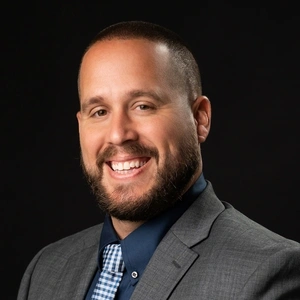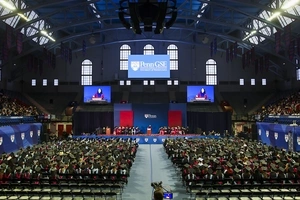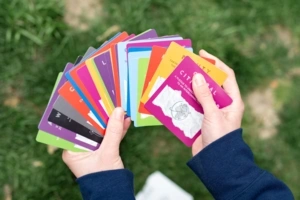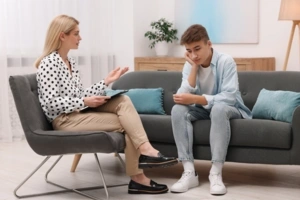Faculty Expert
-
Kyle Schultz
Lecturer in Educational Practice and Director, Counseling and Mental Health Services Program
Human Development and Quantitative Methods Division
In many graduate programs, students can prepare for professional life with internships and research, but school and mental health counselors have limited options to simulate their future professions. Before they can support patients, mental health practitioners need extensive preparation. To provide on-the-job training for students, Penn GSE offers a simulated counseling experience where first-year students role-play as clients and clinicians, and second-year students and faculty offer feedback on their performance.
The Penn Counseling Lab is part of Penn GSE’s two-year M.Phil.Ed. Program in Professional Counseling, which trains students to be certified school counselors and licensed professional counselors. Students must participate in 20 hours per week of practical or internship placement, and the Penn Counseling Lab provides a unique opportunity to test out their future profession.
The students discuss real-world scenarios over three sessions to develop practical skills. The “client” shares concerns from a list of safe topics, including career successes and frustrations, roommate issues, work–life balance, and minor relationship struggles, and the “counselor” responds with strategies and support.
The sessions are videotaped so second-year student supervisors and faculty can observe and offer feedback. This year, six second-year students are acting as supervisors.
While first-year students hone their practice, second-year students acquire essential professional skills, including supervision, consultation, and sharing positive and constructive feedback.
Throughout Penn GSE’s two-year program, students must complete 200 hours of training in their first year — a more rigorous requirement than many other graduate programs in the field, which average closer to 100 hours. To date, about 300 first-year students have participated in the lab.
At a time when demand for mental health professionals runs high, the Penn Counseling Lab is an opportunity for aspiring clinicians to practice and receive individualized feedback before they enter the field. The supervising second-year students provide detailed, individual responses to each participant, augmenting their in-class studies.
“Students need to practice these things and not just learn about them from the reading and class exercises. They need practical experience,” noted Kyle Schultz, lecturer in Educational Practice and Director of the Counseling and Mental Health Services Program, who oversees the Penn Counseling Lab.
In the counseling field, Schultz said it is unusual for students or licensed practitioners to have their sessions recorded and viewed by peers or supervisors who can share observations based on first-hand accounts. Typically, he said, when students share experiences with supervisors or mentors, they must draw off their memory and notes. He said the Penn Counseling Lab work is more accurate and, therefore, more impactful on a student’s style and substance.
“To have someone watch your actual session and hear in real time what you are saying, how it matches your non-verbal skills, is very different from recounting what happened,” Schultz said.
The program benefits the more advanced students with leadership skills. When second-year supervisors review sessions, Schultz encourages them to share positive and constructive observations. These interactions help prepare them to mentor other counselors and interact with professional peers. For example, second-year students are encouraged to give the first-year students two positive observations, followed by areas where they could improve.
“The goal is not to give them a huge laundry list of things to work on, but also to point out strengths and styles they’re evidencing at an early stage,” he said.
Recently, the program expanded to include students in the School and Mental Health Counseling executive master’s program for full-time working professionals. (Executive students participate in online or in-person sessions to accommodate their schedules.) In the future, Schultz said other graduate students and local clinicians who want feedback to participate may be invited to the lab to hone their skills.
In the sessions, Schultz said student counselors are encouraged to follow “deliberative practice,” a method where individuals identify small goals to work on, practice them, and receive expert feedback on their progress. Used in sports and performance art, he said the method also translates well to the mental health field.
For first- and second-year students, the lab experience delivers a tangible window into their future profession, Schultz added.
“It provides exposure to situations before they even sit with clients or students, and it helps them manage their anxiety and worries,” he said.
Media Inquiries
Penn GSE Communications is here to help reporters connect with the education experts they need.





